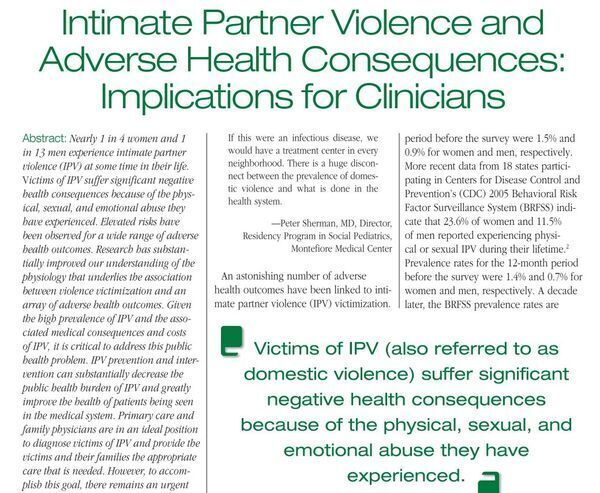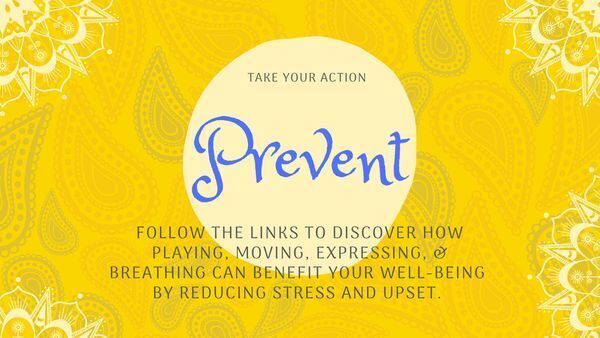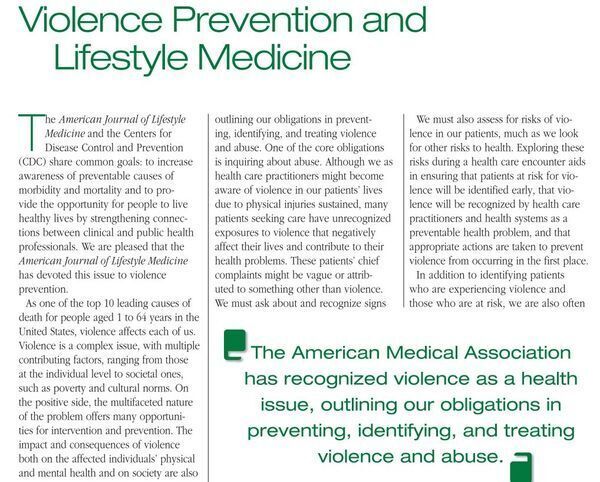-
This paper makes connections between health equity and our work to prevent sexual and intimate partner violence. It centers the stories of survivors at the intersections of systemic racism, violence, and oppression. It explores ways to build both individual and organizational capacity to address health inequity. And, it offers a call to action for those ready to commit to health equity in their gender-based violence prevention work.
-
Nearly 1 in 4 women and 1 in 13 men experience intimate partner violence (IPV) at some time in their life. Victims of IPV suffer significant negative health consequences because of the physical, sexual, and emotional abuse they have experienced. Elevated risks have been observed for a wide range of adverse health outcomes. Research has substantially improved our understanding of the physiology that underlies the association between violence victimization and an array of adverse health outcomes. Given the high prevalence of IPV and the associated medical consequences and costs of IPV, it is critical to address this public health problem. IPV prevention and intervention can substantially decrease the public health burden of IPV and greatly improve the health of patients being seen in the medical system.
-
The Sex, Pleasure, Choice patient education brochure was developed for use in sexual and reproductive health settings. Sexual and reproductive health providers, navigators, and educators can use this business card-sized tool to prompt conversations with patients about sexual and reproductive autonomy within their intimate and/or sexual relationships, experiences of sexual or reproductive coercion, and how these experiences may be impacting their health. The back panel of the card includes information on where patients can get support for themselves or a friend, a resource for safety decision making (MyPlan), as well as where to access low-cost sexual and reproductive healthcare. This card can be used with people of all genders and sexualities and is an updated version of FUTURES “Did you know your relationship affects your health?” safety card.
-
Created by the Ohio Domestic Violence Network, "Support for Stressful Times" is a web-based resource designed for all people. This resource has been designed to help folks deal with the COVID-19 pandemic and beyond check out the virtual ZENworks Yoga Studio where you will learn mindfulness and breathing practices.
-
The American Journal of Lifestyle Medicine and the Centers for Disease Control and Prevention (CDC) share common goals: to increase awareness of preventable causes of morbidity and mortality and to provide the opportunity for people to live healthy lives by strengthening connections between clinical and public health professionals. We are pleased that the American Journal of Lifestyle Medicine has devoted this issue to violence prevention.
search








